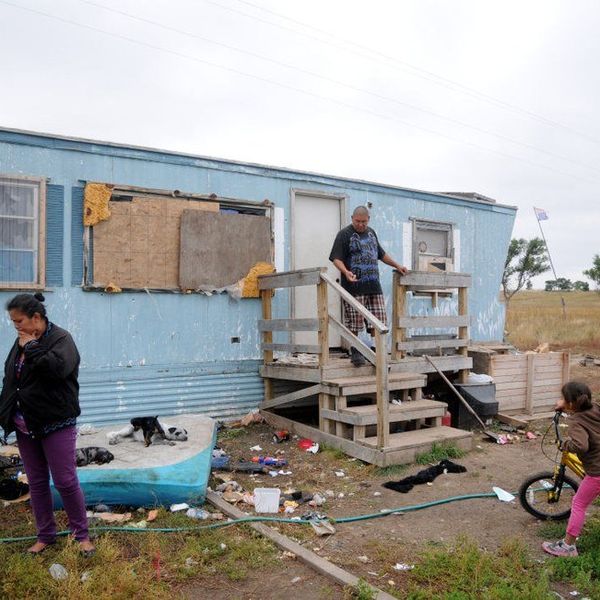There are millions of people in the world without access to clean drinking water. Normally, we as Americans think of people without clean drinking water to be in other countries around the world, like Africa or India. How many of us, though, are thinking about the fact that it is likely to be part of America soon, as well?
The Dakota Access Pipeline began its journey to existence in February of 2015. From the beginning stages of its creation, the Tribal Historic Preservation Office (THPO) was very skeptical of the idea and requested more information, primarily in the form of a full archeological investigation. This wasn’t too unreasonable of a request, as this construction project would be tearing into their sacred and historic lands, promised to them through treaties that are hundreds and hundreds of years old, as well as potentially poisoning their water supply. This request allegedly went unanswered. Then, in September of 2015, the US Army Corps of Engineers (USACE) contacted THPO once again asking to meet and discuss the project; once again, the tribal chairman replied, expressing concern about “significant and unevaluated properties.”
Soon after, the USACE received letters from the Environmental Protection Agency, the US Department of Interior and the American Council on Historical Preservation. Despite growing concerns from many tribes about the effect that the project could have on their land, wrong information from the ACHP, and obvious disregard of Section 106 of the National Historic Preservation Act, the Corps decided to move on with the project after wrongly concluding that no historical sites will be affected, and that there would be “no direct or indirect impacts” to the Standing Rock Sioux reservation.
These conclusions are obviously wrong, because on September 3 of this year, Dakota Access bulldozers plowed 2 miles of land, destroying a sacred tribal burial ground belonging to the Standing Rock Sioux; this land was included in the lawsuit that THPO filed against the Corps in attempt to stop them from using their land in the project. THPO’s lawsuit was soon contested by a lawsuit from the USACE, which sued THPO for delaying/blocking construction.
The immense disrespect and disregard for the tribe and their land sparked what many are calling one of the largest Native American protests in history, including many tribes from many locations across the country. The protests, though very diverse, are led by the Standing Rock Sioux; together, they are blocking construction to protect sacred land that is rightfully theirs, and to protect their drinking water, which is directly threatened by the project. However, as the number of protestors grew to the thousands, with more than 100 tribes represented, homeland security removed state owned tanks and trailers that provided drinking water to the protestors. Protests continued nonetheless, becoming violent on the anniversary of the Whitestone Massacre of 1863; a day that the US Army killed over 300 members of the Standing Rock Sioux tribe. Many people, including children, were bitten by security dogs and pepper sprayed.
On September 9, the courts ruled that construction would continue; however, the Department of Justice, the Department of the Army, and the Department of the Interior come together to say that they refuse to do construction within 20 miles of the protest site until it is decided whether or not the construction is in violation of the National Environmental Policy Act.
As someone with very strong Native American roots, it amazes and inspires me to see so many tribes, so many people, coming together to protest the harm that could be done to their families, their tribe, and their land. I am shocked by the disrespect that the project supporters are treating the Natives with, primarily the Standing Rock Sioux tribe. Most of all, my heart breaks for the tribes that have to go through such great trouble, not only now but for hundreds and hundreds of years, just to protect themselves, their tribes, and their land. I stand with the Standing Rock Sioux, in horror and disbelief that the project supporters have more or less ignored all efforts to save the land, and that they plowed through a sacred burial site days before the court decision was due.
If we as Americans are so ready and willing to help those in other countries without clean drinking water, why are some of us so willing to put our fellow Americans in the position to not have clean water? Though the refusal to do construction around the protest site, and pipeline supporters asking that the construction is voluntarily put off is obviously good news, we will see if the companies show such constraint.





















